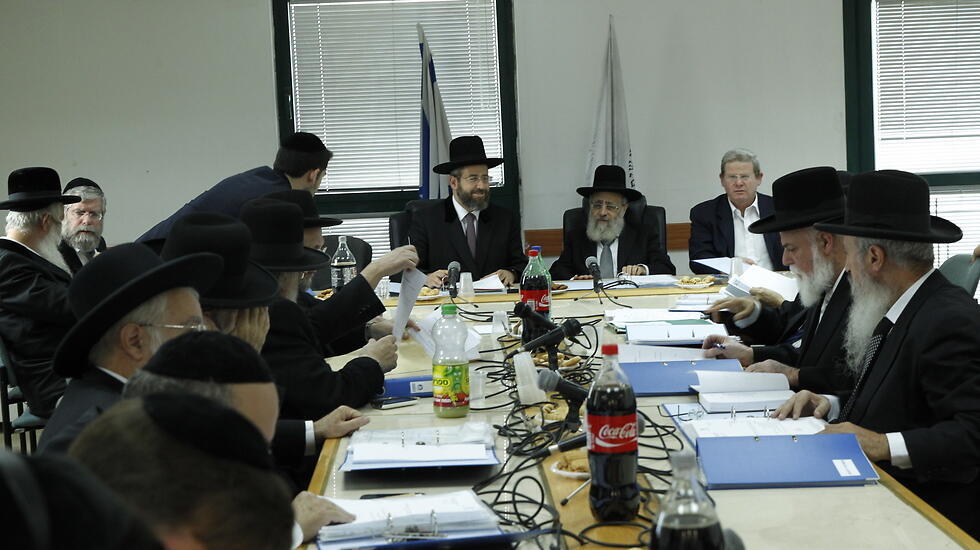Getting your Trinity Audio player ready...
Israel's Chief Rabbinate has compiled a blacklist of overseas rabbis whose authority they refuse to recognize when it comes to certifying the Jewishness of someone who wants to get married in Israel.
The list, obtained by The Associated Press, includes a number of prominent Orthodox rabbis in North America. Among them are a social activist in New York who has advocated for greater rights for women, a Canadian rabbi who is friendly with Prime Minister Justin Trudeau and a close colleague of the rabbi who converted Ivanka Trump.
The list, which includes 160 rabbis from 24 countries, is another sign of a deepening rift between overseas Jewish communities and Israeli religious authorities.
Tensions have already been mounting between the world's two largest Jewish communities since the Israeli government last month froze plans to create an expanded egalitarian prayer section at Jerusalem's Western Wall, the holiest place where Jews can pray.
The rollback of a deal reached last year to open up the holy site to liberal streams of Judaism was seen as Prime Minister Benjamin Netanyahu's capitulation to pressure by his ultra-Orthodox coalition partners. Those ultra-Orthodox partners also control Israel's Chief Rabbinate.
Jews who immigrate to Israel are required to provide the government's Interior Ministry with proof of Judaism in the form of a letter from a rabbi. But those who wish to wed in Israel face an additional hurdle.
While the Interior Ministry's criteria are clear-cut and inclusive, the ultra-Orthodox-dominated Chief Rabbinate takes a much stricter line.
For instance, it does not recognize the validity of Reform or Conservative Judaism, which is practiced by the vast majority of North American Jews.
The Chief Rabbinate's blacklist included not only Reform and Conservative rabbis overseas, but some of the most prominent Orthodox rabbis as well.
Rabbi Avi Weiss, an Orthodox clergyman based in Riverdale, New York, who advocates a "more open and inclusive Orthodoxy," said he was unaware of the list and could think of no reason why he was placed on it.
"The whole thing seems to be nonsensical on every level," Weiss said. Although he said he didn't find it personally painful, its existence was "tragic" because it only served to "alienate" fellow Jews.
Another member of the list, Rabbi Adam Scheier, who leads an Orthodox congregation in Montreal and has ties with Trudeau, called it "an affront to the hard work and devotion of so many of my colleagues—of all denominations."
The blacklist, he said, appeared to be "one of the many cases in which the Chief Rabbinate has carried out its function without transparency or process."
Rabbi Daniel Kraus of Kehilath Jeshurun, a major Orthodox synagogue in Manhattan, also is on the list. Kraus serves with Haskel Lookstein, the rabbi who converted Ivanka Trump. Lookstein's name was not on the list, and while his conversions have been questioned by the rabbinate in the past, they are now accepted.
Also rejected were rabbis teaching at Yeshiva University, the flagship university for the US Modern Orthodox movement, a rabbi with the Chabad movement at Rutgers University in New Jersey, and prominent Modern Orthodox rabbis pushing for greater openness in Judaism.
In March 2016, an Israeli court ordered the rabbinate to release a list of rabbis whose testimony it had approved to ITIM, the Jewish Life Advocacy Center, an organization that helps Israelis deal with the rabbinate's bureaucracy. ITIM asked the Chief Rabbinate for the names of rabbis whose letters were approved and rejected in 2016 at the beginning of this year. The rabbinate complied in April.
ITIM founder Rabbi Seth Farber charged that the rabbinate has no explicit criteria for determining the Jewishness of people who wish to marry in Israel.
"There's little rhyme or reason," Farber said. "These are peoples' lives at stake."
A single rabbinate official, Rabbi Itamar Tubul, is responsible for determining the validity of rabbinical letters testifying to marriage applicants' Jewishness. Neither the Chief Rabbinate's spokesman nor Tubul's office responded to requests for comment.


